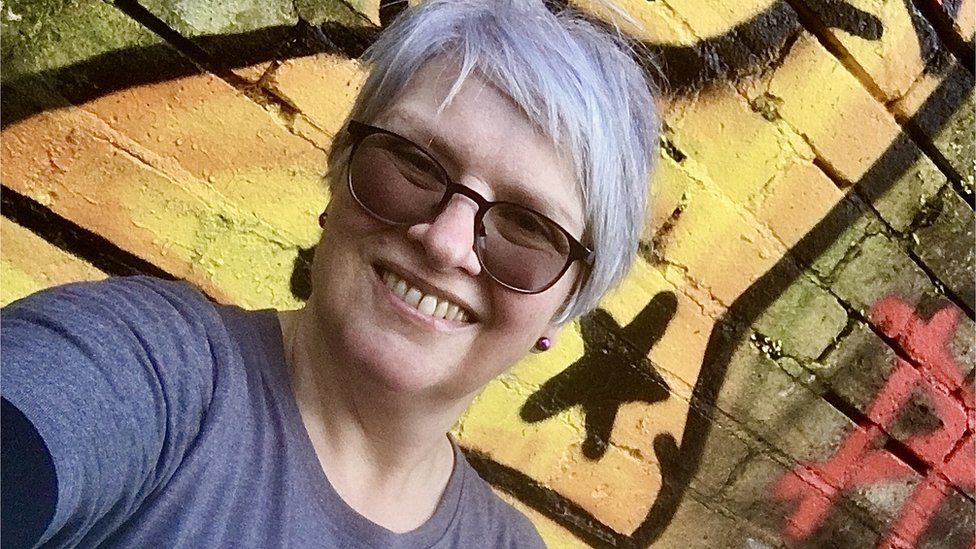ARTICLE AD BOX
 Image source, Rose Matthews
Image source, Rose Matthews
Rose Matthews, 63, from County Durham, said getting an autism diagnosis late in life was "lifesaving"
By Jonathan Fagg & Lauren Woodhead
BBC England Data Unit
The average wait for an autism diagnosis in England has hit 300 days, according to new NHS data.
That is up 53% from 12 months prior and exceeds the NICE target of 91 days.
The National Autistic Society described such wait times as appalling, warning "autistic people shouldn't miss out on vital support because they haven't got a timely assessment."
A government spokesperson said it had made £4.2m available this year to improve services for autistic children.
Rose Matthews, 63, from County Durham, said receiving an autism diagnosis had been "lifesaving - and I don't say that flippantly".
Before receiving their diagnosis at the age of 59, Rose, who uses "they" and "them" as personal pronouns, said: "My life was unravelling.
"My career was unravelling."
They said their GP had "deeply misguided ideas about what being autistic meant" and brushed them aside.
Joey Nettleton-Burrows, policy and public affairs manager for the National Autistic Society (NAS), said: "We do see lot of misunderstanding from people, and it can include health and social care staff, but I wouldn't say it is common with GPs."
Rose paid about £1,300 for a private diagnosis.
'Difficulties down to differences'
"The difference it has made is indescribable, really in terms of self-compassion, self-care, asking for help, knowing what adjustment and accommodations I need," they said.
"I used to think I must be a very difficult person because of the things that happened to me. Now I understand that my difficulties are because I have differences."
But they added: "It is a matter of great concern that privilege buys you access to something that is life changing."
Image source, Carolina Jaramillo / Getty Images
Image caption,Campaigners say more money is needed to be spent on recruitment and retention to help cut waiting times
In September 2023, there were 157,809 people in England with an open referral for suspected autism, according to new NHS data.
That is up 50% from 12 months prior.
Of those currently open, 134,315 (85%) had a referral that had been open at least 13 weeks.
The NICE target for suspected autism is for an assessment to take place within 13 weeks - 91 days - of referral.
However, the latest figures show median wait times for those contacted between July and September reached 300 days this year, up from 196 at the same point in 2022.
Some Integrated Care Boards have much longer average waits - the longest is 1,176 at Derby and Derbyshire, followed by 787 at Cornwall and the Isles of Scilly.
Mr Nettleton-Burrows said that to bring waiting times down more money needed to be spent on recruitment and retention.
He added the parts of England most struggling with staffing would "undoubtedly have the highest waiting times".
He added the NAS was aware of people facing wait times as high as five or six years.
"Ultimately, people shouldn't be waiting longer than 13 weeks," he said.
"Anything else is completely unacceptable."
In September, NHS Devon apologised after some people were told to expect a five-year wait for an autism assessment.
The latest data has been adjusted slightly from previous releases to make the definition of "open referral" more accurate.
What is autism?
Autism spectrum disorder (ASD) - its medical name - is the name for a range of conditions which affect how a person communicates and interacts with the world around them, as well as their interests and behaviour.
It's not a disease or an illness but a condition somebody is born with.
The NHS says if you or your child have signs of autism, the next step is to talk to someone about it - including a GP, health visitor, a special educational needs co-ordinator (SENCO) at school - and they will be able to refer on for assessment.
An assessment is done by autism specialists. It's the only way to find out if you or your child are autistic.
Rose said those waiting for a diagnosis should not "let the fact that you haven't got a diagnosis hold you back from being part of the community of autistic and neurodivergent people".
"I felt a bit like I wasn't entitled to be part of that community until I was officially diagnosed, which was complete nonsense.
"Because when I did join a community of people online, they accepted me."
A Department of Health and Social Care spokesperson said they knew it was "vital to have a timely diagnosis of autism".
They added: "We've made £4.2m available this year to improve services for autistic children and young people, and the NHS Long Term Plan will expand and transform mental health services in England with at least an extra £2.3bn a year by March 2024.
"NHS England has published a national framework and guidance on how people can receive a timely assessment and providing support before and after a diagnosis.
"We expect all integrated care boards and NHS Trusts to follow the clinical guidelines on autism published by the National Institute for Health and Care Excellence."
Related Internet Links
The BBC is not responsible for the content of external sites.

 1 year ago
26
1 year ago
26








 English (US) ·
English (US) ·